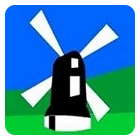Geography
INTENT
We believe that our Geography curriculum should be representative and inclusive of all learners. Our intent is to ensure that Geography helps children make links between their own lives and the wider world. It helps them to understand the world in which they live and how it might change in the future. Our Geography curriculum has been written to ensure it fosters children's interest in their surroundings, to develop a sense of place and a sense of responsibility for the care of people and the environment. We encourage children to celebrate their own cultural heritage as well as explore others.
IMPLEMENTATION
The Brookmead Geography curriculum places a strong emphasis on acquiring geographical knowledge and applying it purposefully to develop pupils' capacity to think geographically. This also develops the capacity to reason, and use evidence to develop hypotheses and justify thinking. As with all of our curriculum, Geography is taught through systematic enquiry which prompts pupils to ask and answer questions about the world around them and how human activity and location are inter-related.
Our Geography curriculum celebrates diversity through an inspirational curriculum which links to themes in History. For example, Year 1/2 children make comparisons between their local area and Japan. Through their topic on The Ruthless Romans, Year 4 children study Aurelian Moors and The Ivory Bangle Lady. Year 6 study the Windrush generation, their journey across the atlantic and their settlement in Britain. Links across the curriculum ensure continuity of experience for our children and deeper learning. The attached document details our progressions in skills across the school from foundation to year 6. Within school, we also have this broken down in termly coverage to ensure further building of skills.
Learning in Geography is brought to life through school trips and learning experiences.
IMPACT
Through our teaching and learning in Geography we challenge, we inspire and we ensure children achieve:
- Learners have a growing knowledge of the world and their place in it.
- Learners have a wider vocabulary of geographical terms.
- Learners aspire to discover more about the world, through reading, travel or the media.
- Learners develop their geographical skills, such as, evaluation, creativity, problem solving and enquiry.

